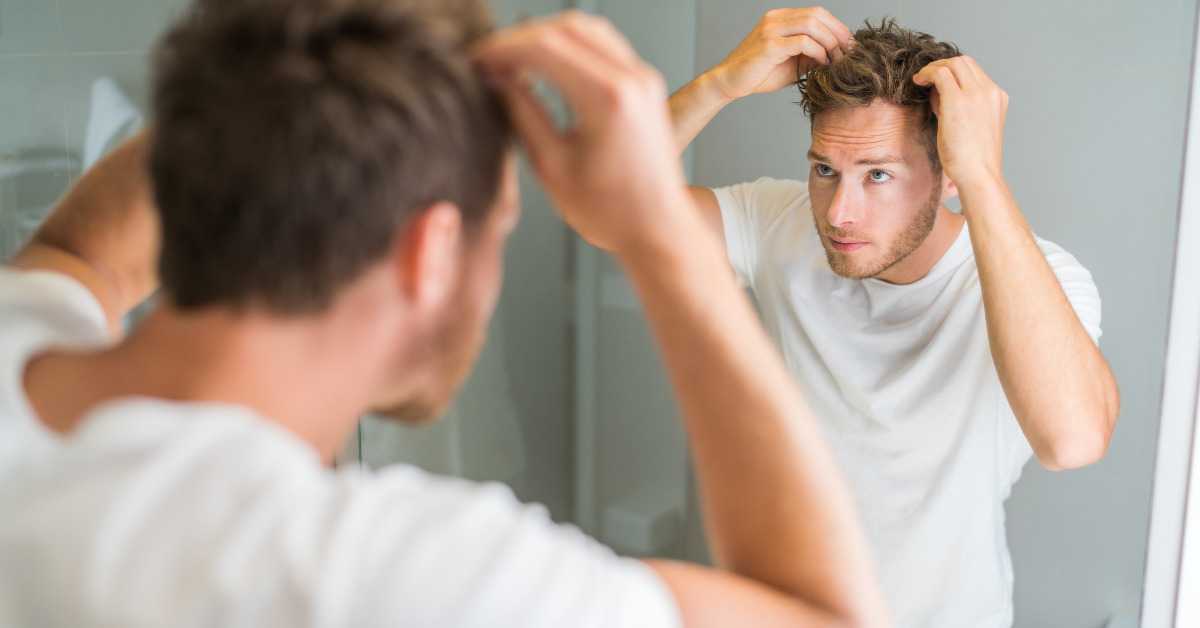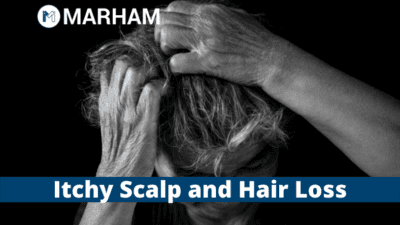Do you have trouble keeping your fingers away from your itching scalp? As if that weren’t horrible enough, you’re also losing your hair! So, if you’re wondering whether the two have a connection, we’re here to tell you.
An itchy scalp and hair loss can be caused by various factors, including rigorous hair care and scalp problems. As a result, it is time to update your hair care and scalp health. Find out how, in addition to knowing its connection to hair loss. You can also visit top dermatologists in Islamabad to consult about your hair loss issues and get diagnosed as soon as possible.
How are Itchy Scalp and Hair Loss connected?
Scratching your scalp weakens your hair follicles. Scalp pruritus, often known as itchy scalp, can be caused by fungal infections, allergic reactions to hair care products, or inflamed hair follicles. These factors can cause havoc on the hair follicles and result in hair loss.
Scalp itching caused by dandruff can result in itching and scratching. Scratching then causes hair follicle damage and hair loss.
Typically, this type of hair loss is transient, and itching may or may not accompany permanent hair loss, such as male pattern baldness. Scratching does not affect this inherited type of hair loss.
Common causes of Itchy Scalp:
Scalp ringworm:
Infection with the fungus that causes ringworm results in a very itchy red rash. This can lead to hair loss due to ringworm and other fungal infections.
Ringworm sufferers may experience patches of hair loss on the scalp. Scalp ringworm can be treated with prescription antifungal medications, and hair will grow afterward.
Folliculitis:
Inflammation of the hair follicles is known as folliculitis. Bacterial and fungal infections are two of the most common causes of folliculitis.
Itching and hair loss are common side effects of this infection. Antibiotics or antifungal drugs can treat a bacterial or fungal infection to get rid of folliculitis.
Alopecia areata:
Alopecia areata is a disorder that can cause hair loss in small areas. Also, it can create a rash on the scalp.
The etiology of alopecia areata is unknown, but scientists suspect that a person’s immune system erroneously destroys their hair follicles. People with autoimmune diseases or those with a family history are more likely to suffer from this ailment.
Dandruff:
There is an itchy, dry scalp caused by dandruff. After scratching, people observe their skin peeling throughout the day. In rare cases, dandruff can cause hair loss. In most cases, dandruff only leads to hair loss if left untreated for a lengthy period.
Male Pattern Baldness and Itchy Scalp:
Among men, male pattern baldness, more commonly referred to as androgenetic alopecia, is the most prevalent cause of hair loss. Unlike psoriasis, fungal infections, and other scalp diseases, male pattern baldness does not cause your scalp to itch or feel uncomfortable.


Slow and steady hair loss occurs over years or decades without any other symptoms, which happens with this condition.
Irritation, scratching, or rash aren’t the culprits behind male pattern baldness in men. A hormone called dihydrotestosterone, or DHT, affects your hair follicles and is responsible for the development of alopecia areata.
Male pattern baldness doesn’t cause much irritation, and scratching isn’t a good indicator that you’re on the verge of losing your hair. Real indicators of male pattern baldness, such as hairline changes, obvious thinness, or excessive shedding, should be looked for by anyone concerned about the condition.
Treatments for Itchy Scalp and Hair Loss:
Chemical treatments:
Treatments for itching and hair loss differ depending on the underlying cause. Recommendations may include:
- Steroids are used to alleviate inflammation.
- Antifungals (topically or orally) are used.
- Immunotherapy drugs to control the immune response.
The following are common therapies for hair loss:
- Minoxidil (Rogaine) is a prescription medication used to treat hair loss and promote hair growth.
- Hair loss caused by genetic baldness can be treated with Finasteride (Propecia).
- Surgery for hair follicles.
Home remedies:
Chemical treatment for itchy scalp and hair loss isn’t always necessary. To keep your scalp and hair healthy, here are some things you can do on your own!
- Eat a healthy diet.
- Ese targeted shampoos.
- Use essential oil.
- Do a scalp massage.
- Treat your hair gently.
Consult with Dr. Ghulam Mujtaba-Dermatologist:
Dr. Ghulam Mujataba is a very well-known and experienced dermatologist with 30 years of experience and a very 93% patient satisfaction score. You can book an appointment with Dr. Ghulam Mujtaba for just 1,500/- via Marham.pk.
| Android | IOS |
|---|---|
  |
  |
FAQs
1- Does itchy scalp mean hair loss?
The good news is that an itchy scalp won’t cause hair loss. However, some skin diseases that create an itchy scalp can damage hair follicles, causing shedding or permanent hair loss.
2- Which lack of vitamin causes hair fall?
Vitamin D deficiency can cause hair loss. Vitamin D stimulates both young and old hair follicles. Lack of vitamin D might hinder hair growth.
3-What is the main reason for hair fall?
There are several causes, such as hereditary or hormonal changes. Men are more prone to hair loss than women, and the most prevalent cause of baldness is hereditary hair loss.

